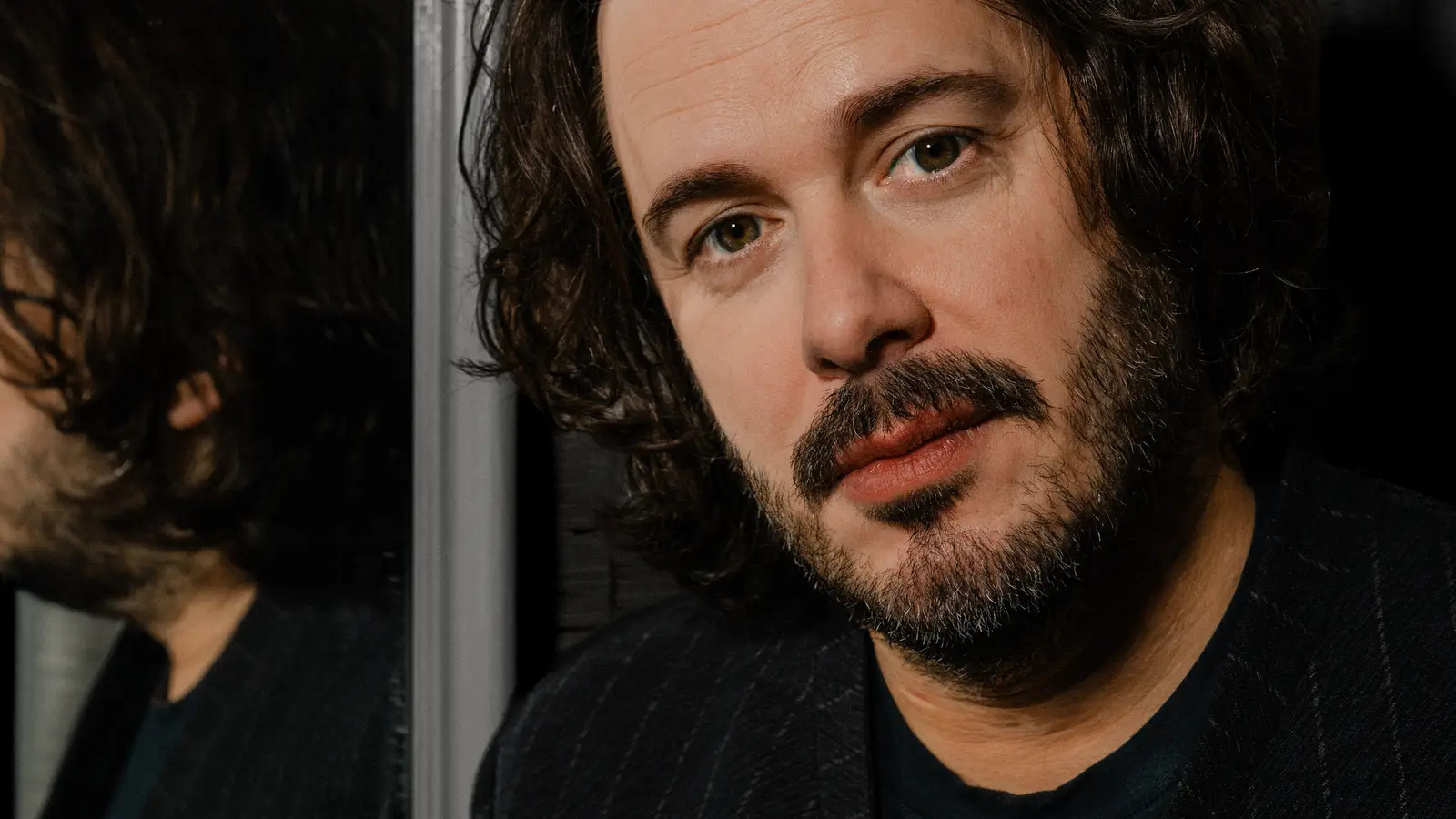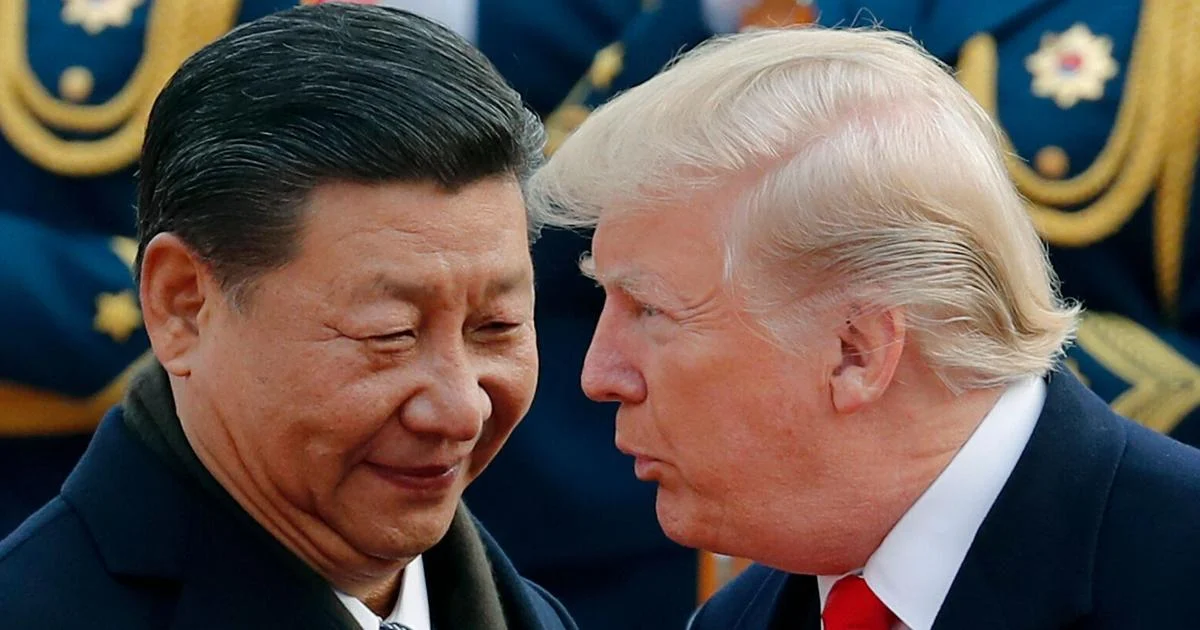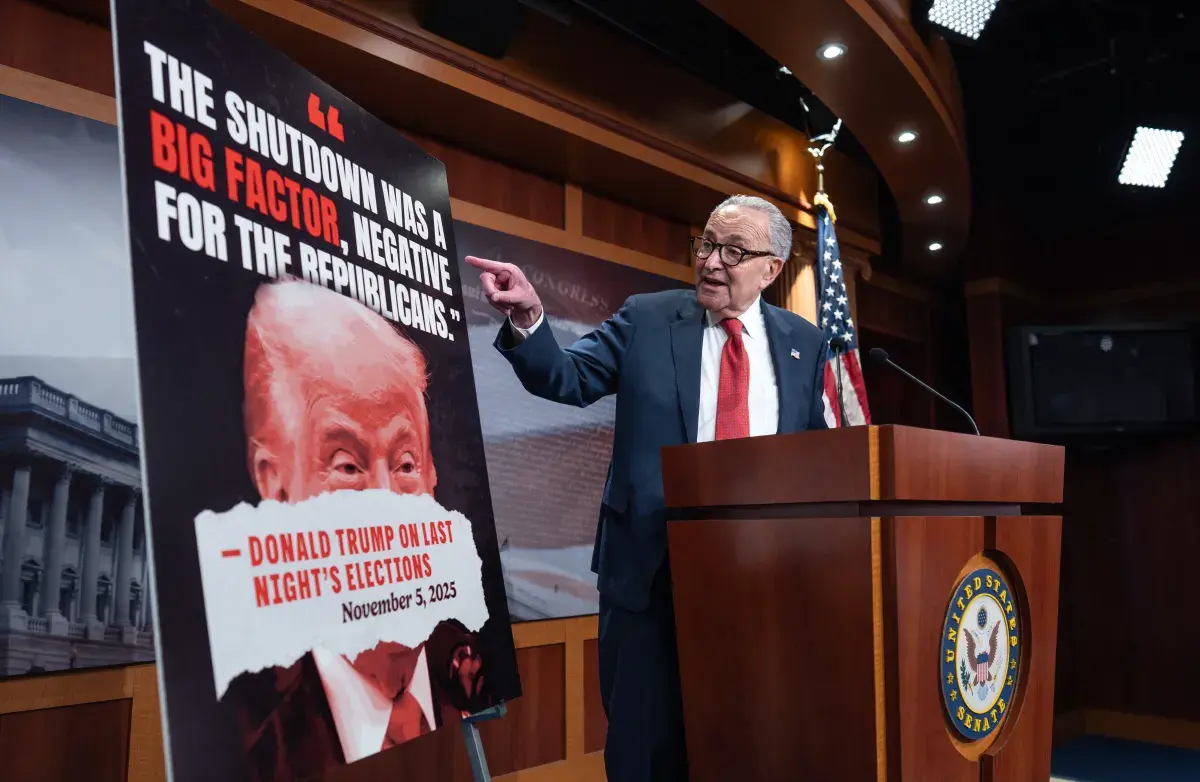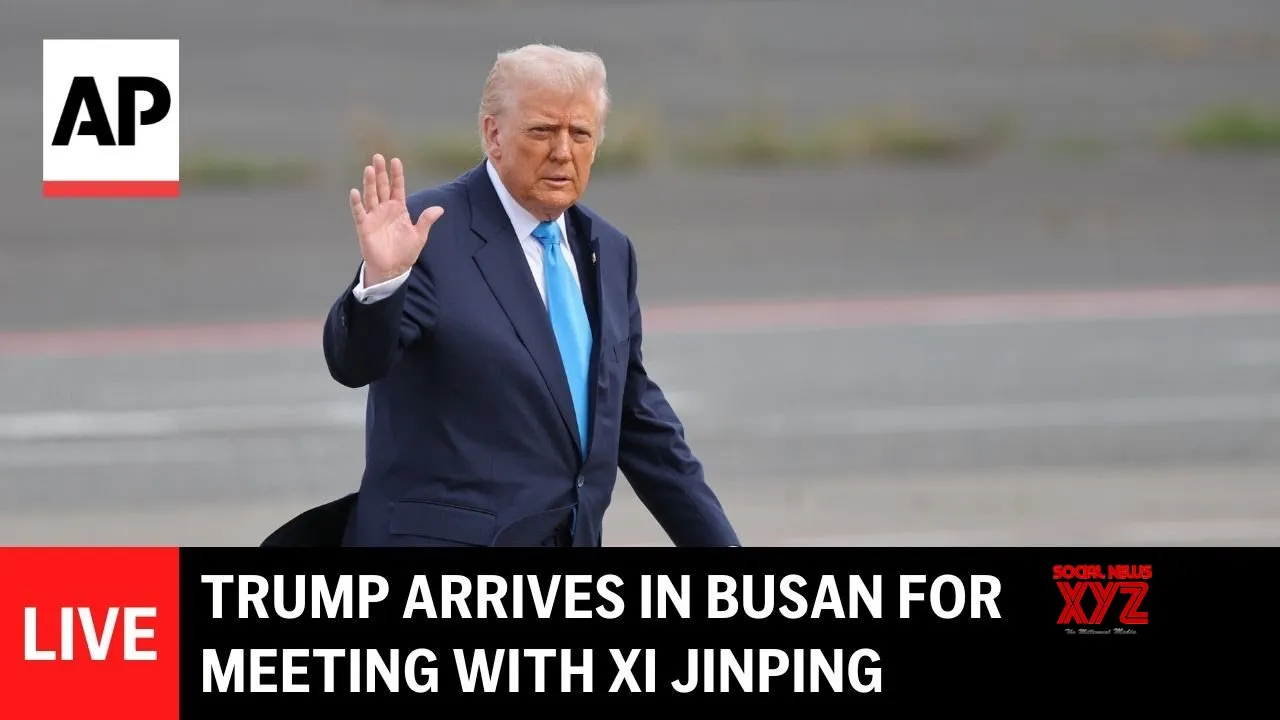Copyright Screen Rant

Based on Stephen King’s 1982 bestseller (then written under the pseudonym Richard Bachman), Edgar Wright’s The Running Man is not a movie remake—it’s a book adaptation. The distinction probably matters more to acolytes of Paul Michael Glaser’s 1987 Arnold Schwarzenegger film than even to Wright himself, but it’s notable in the way the new version feels like a perfect marriage between King’s source material and the director’s feverish, indefatigable creativity: Fast-paced, surprising, bitingly funny and always on the move. It’s also Wright’s biggest movie to date—a bona fide studio blockbuster, a challenge that the filmmaker says was mitigated by the fact that execs working for its distributor, Paramount Pictures, not only encouraged him to put it into production but gave him significant creative latitude. “I'm very happy that this is a big studio movie because I don't feel like I had to tone down my sensibilities,” Wright tells Screen Rant. “It's just we made the movie we wanted to make.” Looking at his prior work, including two sacred genre texts (Shaun of the Dead and Hot Fuzz) and a beloved graphic novel adaptation (Scott Pilgrim vs. the World), it certainly feels like he’s been able to do that his entire career. Films like The World’s End, Baby Driver, and Last Night in Soho are conceptually antithetical to studio formulas, and feel like they’re made virtually by hand. Though The Running Man is comparatively much bigger, that sensibility not only carries forward but seems to have beautifully evolved, evidencing a filmmaker who not only brings a strong vision to each project but adapts to their unique needs. Ahead of the film’s Nov. 14 opening day, Wright sat down with Screen Rant for a discussion about the journey he’s been on as a filmmaker—not simply the career choices that led him to The Running Man, but the lessons learned and creative growth he’s experienced, from his Spaced and Shaun of the Dead days to today. I believe this film started in 2017 with an announcement on social media that you wanted to adapt this book. Edgar Wright: Well, somebody on Twitter said, "What film would you remake?" So I wouldn't call that a trade announcement. I was just answering a fan question. How aligned at the beginning were your ideas for the film with contemporary politics, and how much did those things converge during the incubation process? Wright: I think the latter—converging with the incubation process. I mean, the timeline is longer than that on a number of levels [with] Stephen King's book, number one, which was published in 1982 under Richard Bachman but he wrote the book in 1972. He plucked the year 2025 [in which it’s set] out of the air—I actually asked him why, and he goes, "Oh, it had a nice ring to it… I didn't necessarily think about the fact that we'd be talking about it in the year 2025." When did you first discover the book? Wright: I had read the book as a teenager in the late '80s, probably when I was about 14. The Running Man really stuck with me, and then when I saw the 1987 version with Arnold Schwarzenegger, I was very aware even then it was radically different to the book. They only really use part of the game show setup. So, being a fan of Stephen King and also when I was starting to become a filmmaker, I was aware that there was a whole other movie in that book to be adapted. And maybe as long as 15 years ago, I'd even looked into the rights for The Running Man and they were complicated and unavailable. So I'd forgotten about it. What changed? Wright: Obviously, it's a question that comes up in interviews. "Hey, if you had to remake any film, what would you remake?" And I'd say, "Oh, The Running Man." But [producer] Simon Kinberg emailed me and said, "Is it true you have an interest in adapting The Running Man? We just got the rights." So myself and [co-screenwriter] Michael Bacall started working on the script in early '22. And then in 2023, there were the writers and actors strikes. And [former Motion Picture Group Chief] Mike Ireland from Paramount actually said in early '24, “we should make The Running Man this year.” He wasn't saying that because the book was set in 2025, but it's this wild and beautiful kismet that here we are six weeks away from 2025 ending with a movie set in 2025. Given the fact that the original book was set in 2025, what did that mean for the reality that you wanted to create in a dystopian future? Wright: We never say what the year is in the film because when sci-fi films have to pick a year, they never go quite far enough. I remember feeling disappointed when I was younger that, as a fan of 2001, when we actually got to 2001, it was like, "Oh, we're not there yet." Or Escape from New York, and they say, "The year is 1997." So we decided not to say what year it was in the film, but within the book and within the film there's some advanced technology in there, but nothing that doesn't actually exist. So we decided it was a different tomorrow. We wanted to make it feel retro-futuristic in the same way that Terry Gilliam's Brazil is a '80s film, but it has some 1940s styling. One of the ideas going into the production with [production designer] Marcus Rowland was, "What if this was Stephen King's 1982 idea of 2025?" So some things are advanced, and then other things have regressed. The satirical edge of this movie feels totally authentic to the movies that you've made before, but I think the perception of this movie is that it's more mainstream than other movies that you've made. How did your natural sensibilities bump up against even the perception of what a more commercial blockbuster might be? Wright: I don't know. I'm very happy that this is a big studio movie because I don't feel like I had to tone down my sensibilities, or it wasn't something that was even a discussion. It's just we made the movie we wanted to make. After your past experiences with Ant-Man, maybe even with Tintin, have you learned some things about how to navigate the expectations of often very unforgiving creative process in mainstream Hollywood? Wright: I guess so. The thing with the Marvel process is that it's a slightly different thing because I actually had written the first draft of it before even the first Iron Man came out. So by the time it came around to potentially making it, there's a brand and there's a continuity and there's a certain way things work, which was a bit antithetical to what we'd written and how I'd operated. In this case, I was fortunate that the people who asked me to make it also wanted my spin on the material. Also, we had Stephen King's blessing, because he had to sign off on the adaptation. It was a nerve-wracking moment for me and Michael Bacall to hand in our homework and see what Stephen King thought of our adaptation of his work, but he loved it. But then that's a blessing and a curse because you already have the pressure of trying to visualize the movie that's in your head. And because he likes the screenplay, now, I also have to live up to the movie that's in his head as well. So I spent the entire production just wanting Stephen King to be happy. And thankfully he loves the movie, so it's a win-win. I don't care what anybody else thinks. Prior to that approval, what challenge did you and Michael face in merging your sensibility to Stephen King’s? Wright: A lot of that stuff is not done consciously. There isn't a thing where you sit down with a different kind of a scale and figure out how much of this is a Paramount movie, how much of this is a Stephen King movie, how much of this is an Edgar Wright movie. It's just naturally the movie that you've got in your head. I feel very fortunate in terms of the movie that's coming out in theaters is the movie that I wanted to make. One of the things that I have so much admiration for, especially in your early projects, is how meticulously designed they are. How has your creative process evolved in that sense? Wright: A lot of the thing of designing the movie [that way] is it's almost like a survival instinct. Shaun of the Dead is a good example. It's a low-budget film, but what we're trying to pull off is ambitious on the time and the money. The only way to achieve your ambitions is to prep the shit out of it. I like to be really transparent with the crew and give them as much information as they could possibly want, because I think the more the crew are invested in the overall mission and ambition of the piece, the better. This was no different. But on top of that, we also had another amazing resource in that the book is incredibly detailed. So it was taking that and expanding on that. You mentioned Shaun the Dead, and given how beloved your work is with Simon, that I think there's an audience perception that it's almost like the collaboration between Wes Anderson and Owen Wilson in their careers. You obviously have a new and continued fertile partnership with Michael. How difficult or easy has it been to find the right people to fit with your sensibility? Wright: I feel I've been really lucky to have collaborators throughout my career. When you like working with somebody, you want to work with them again. Obviously, there's Simon and Nick as two examples. But Nira Park, my producer since Spaced, Marcus Rowland, my production designer since Spaced, Paul Matchless, my editor since Spaced, these are relationships that build up over decades, and it's like if you like working with somebody, then work with them again. But to go back to Michael Bacall, when Simon Kinberg got in touch with me about the book, he was the first person that I spoke to because, even though Michael Bacall was mostly known for comedies, I knew that this material with the sci-fi and satiric, and even political aspects of it, he was the perfect person to work with me on this. But doing a movie this complicated, and with a release date [to hit], if I was working with all new people, it wouldn't be impossible, but it would be a lot harder. I'm not somebody that kind of prescribes this idea of the auteur theory of, "I did it all myself." I worked with amazing collaborators, and it's just amazing to be able to work with the same people again and again. How have those relationships facilitated either your growth as a filmmaker or just your ability to continue to have a career? Wright: It's no exaggeration to say on record, I wouldn't be able to do any without Nira. She's just the closest collaborator and has been since Spaced. Even just being a British director coming to Hollywood, having the people that you started with around you who are loyal and know how you work, you have to keep those people. I sometimes see people who make their movie in the UK and then go to Hollywood without anybody else, and then are completely at sea because they get steamrolled because they don't have anybody in their corner. And it's not just about loyalty, but it's about recognizing who you work brilliantly with and continuing to work with them. Do you still feel like "an English director who came to Hollywood," or do you feel like you're a part of Hollywood as a community? Wright: That's a difficult question to answer. It's also a funny thing that in the 21 years since Shaun of the Dead, the idea of coming to Hollywood is now in big inverted commas because nothing shoots in Los Angeles anymore. But also I think filmmaking, in this century, has become more international for a number of reasons. I remember how personal The World’s End was for both you and for Simon. Wright: Not that we could let on at the time. I was actually really proud of Simon when he talked about it. It's beautiful that you guys were able to exorcise and explore those personal experiences. Wright: That's also the nature of being repressed Brits that we'd rather write a film about it than actually talk about it man to man. How much have you found in your career that life experiences, or interacting with the world, has been a part of your creative inspiration, as opposed to providing entertainment and escapism for audiences? Wright: It's a bit of both. I mean, it's funny because I think people think that there's more of a conscious narrative or philosophy. I remember Simon at some point talking about the Cornetto trilogy, "Oh, they're all movies about the individual versus the collective." And I remember looking at him thinking, "You've never said that before!" And he's right, but it's not something he’d ever vocalized. And also it wasn't something that was supposed to be a trilogy. So sometimes it takes other people to say it, and I sometimes feel like you make movies so that the audience can tell you what it's about. I remember with Last Night in Soho, somebody tweeted about the movie, and they were able to articulate what it was about better than I ever could. Somebody had said, “it’s a great horror film about never meeting your heroes.” And I'm thinking, "yes, that is what it's about. I'll use that in interviews in the future!” To maybe encourage that level of introspection a little further, is there a conscious thought where it’s like, "This is what people want from me. I'm either going to fulfill that or I'm going to challenge it?" Wright: I think it’s that saying, “give them what they need, not what they want.” I think sometimes when you preach to the choir, it ends up feeling hollow, so it's a tricky balance because there's a thing where maybe what people expect of you and what you actually want to do might be slightly two different things. I’ve seen that happen with films where people are crying out for something, and then when they get it, they're saying, "No, we didn't actually want that." It's always a difficult thing to manage. So what I try to do is make the movie that if I hadn't directed it, I would be the perfect audience member for. And obviously, as a filmmaker, you have to go through that process of test screenings—there's always a point in the movie where you have to meet the public and see it through their eyes. Sometimes, that goes better than others. But I haven't got to that point in my career where I'm allowed to make a neatly-sealed film. Have you found that your directorial style has changed? Whether it's the stylistic flourishes that were a hallmark of your early work, are there things that either you've grown beyond or that you've tired of? Wright: You don't want to get into a point where you are doing karaoke of your own style. Even within the Cornetto trilogy, or with Scott Pilgrim, there's a point with the quick-cut zooms or montages of gearing up, once you've done the third meta version of that, there’s nowhere else to go with it, really. What I really enjoyed on The Running Man was trying to make the movie feel very experiential. The thing that I really loved in the book that isn't in the 1987 film is that you see everything from Ben Richards’ point of view. You really feel like you are on the show with him because you don't have any information that he doesn't have. And so we designed the action and even the visual storytelling to make it very much a subjective point of view all the time. But also, you want to challenge yourself as a director. I think complacency is death. If you go into a production and that you are not terrified about some scene, then it's probably the end — you’re just going through the motions. Of course, this film is hugely so ambitious, so there was not a single day where I didn’t go to set with that nagging butterflies in my stomach. Earlier in your career you had an “Homage-O-Meter” where when people watched your films, there was a joy in seeing how you’d made references to other work. How much have your influences metastasized in your creativity so that maybe you feel less compelled to spotlight them? Wright: I think it's also that thing where you don't want people to feel that there's required reading. I remember when I was promoting Last Night in Soho, I’d get these interview requests saying, "What five films do I need to watch before I see Last Night in Soho?" And I think, "Well, ideally none." You don't need to watch the 1987 version of this before you see it, or read the book. There's that element of, you don't want people to feel that they have to do homework. People are talking about this as a remake, but it feels more accurate to consider it your second, or maybe third with Adventures of Tintin, adaptation of a literary text. How much has this kindled an impulse to do that going forward as opposed to creating something original? Wright: It's on a case-by-case basis. When Scott Pilgrim was sent to me, I was not previously aware of the book. In fact, I think it had only just been published. This is a book that I read when I was young, and it has stayed vividly in my head ever since. It’s a very rare occurrence that somebody emails you with the offer to do something that you actually already wanted to do. But that's not to say that I wouldn't do something else. But it's been amazing to go between an original work and an adaptation. And also because Bryan Lee O'Malley was present during the shoot of Scott Pilgrim, but both writers are living, and you can talk to them. Stephen was relatively hands-off during the shoot. We named one of the diners in the movie after his wife, Tabby's Diner. So when we shot that location, I took a picture of it and sent it to him at 5:00 a.m. He goes, "Oh, that's amazing." But that was probably one of the few emails I sent him during the shoot. Sometimes you feel a bit spoiled by things as well. I feel that way about even doing The Sparks Brothers—I'd love to do another documentary, but I had such a great experience with Ron and Russell thatI think they probably spoiled me for any other musical subject. To be a bit more existential, looking at your career now, is this the one that you envisioned when you started directing films, whether it's the volume or the specific projects that you've chosen? Wright: Honestly, I feel really grateful to just be working. This business is so fickle and tough and there are so many talented people who are not getting projects made that I hope I don't take any of it for granted. I feel incredibly grateful to have done this. And also in a moment, especially coming out of the production strikes, with lots of people in the industry not working, to be able to do this movie and employ a lot of artists, not just as a director, but as a producer, it's really gratifying. I don't take any of it for granted. I think the thing is, you make every movie like it might be your last. So you better work really hard and be proud of it, because who knows what's around the corner. Given a number of other projects like Barbarella you’ve been attached to in the last few years, how monogamous are you with your focus when you're working on something? Wright: Once you are making a movie, it's not like you are reading anything else. You are living, breathing in that project. I want to say on record that I'm not complaining, these are champagne problems to have, but this was a year of six, seven-day weeks and 16-hour days, so when people say, "What are you doing next?" I say, "sleeping." But I think you figure out, in terms of things that you have in development, you're not necessarily in control of the order of your filmography. It's usually about the right time, the right actor, the right price, the tax breaks, all of that stuff. So once I've gotten through the process of this film, I’ll think about what's next. Given that the cadence in the last few years has been four or five years between movies, is that for you a comfortable pace? Wright: Oh, no. I'd rather do more. But there's other factors that come into it. There's the writing. There's the development. There's production strikes. You could work on a movie and it falls apart. I was actually working on something before this that I thought I was going to do in between this in The Running Man, and it didn't come together. It wasn't the right time, right actor, right price, right anything. So I have to credit Mike Ireland who was the president of Paramount at the time, who literally tapped his watch and said, "Why aren't we making The Running Man?" Usually any project is pushing something uphill, so it's very nice when somebody actually fires the starting gun. The thing is that every time you finish making a film and you think, "We've got the dream team. Let's go. Let's go straight away." But it never works out like that because people are going off to do another project, or you've got to write the next thing. I'm always envious of people like The Coen Brothers, who at a certain point were making a movie every year. But I was thinking, "Yeah, but there's two of them."



